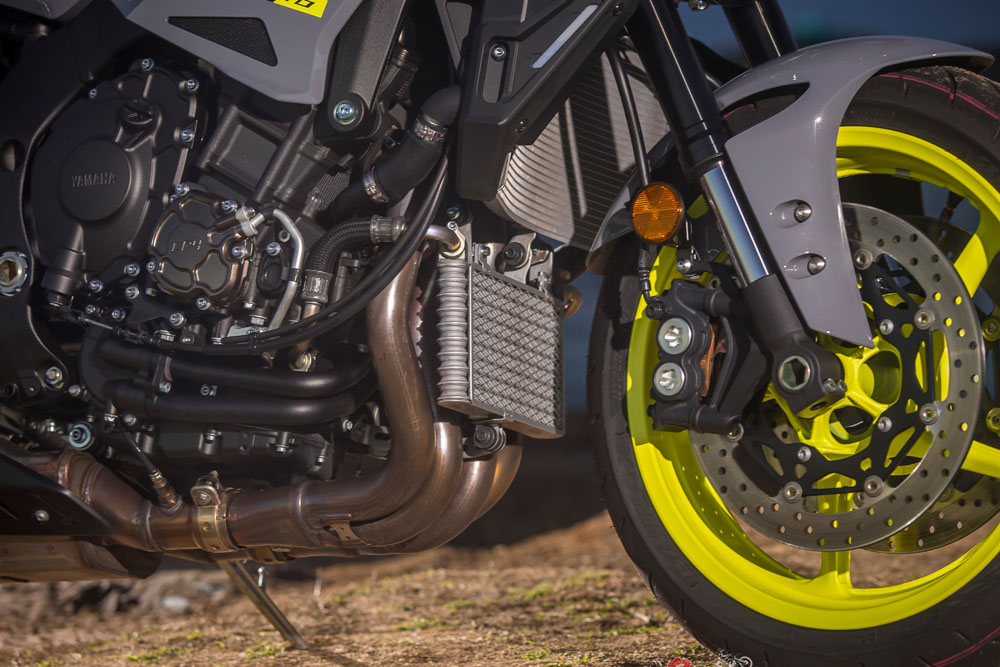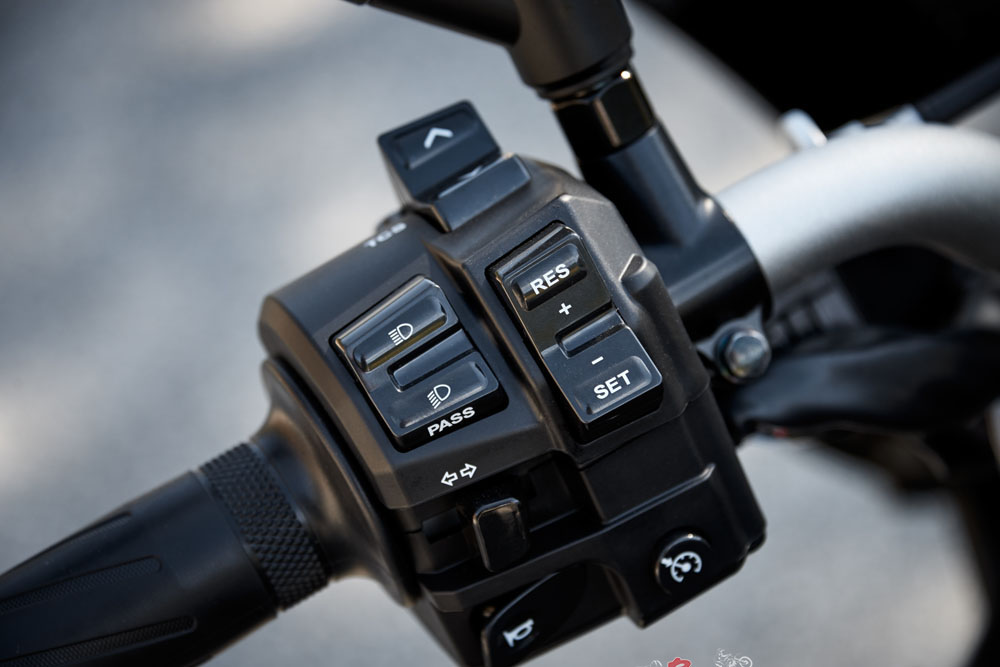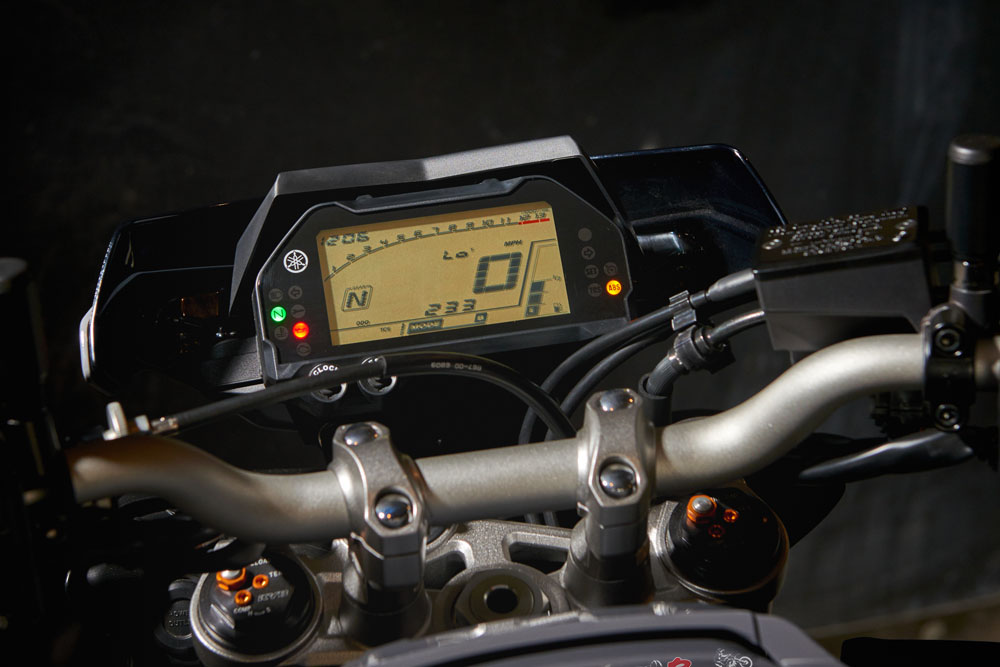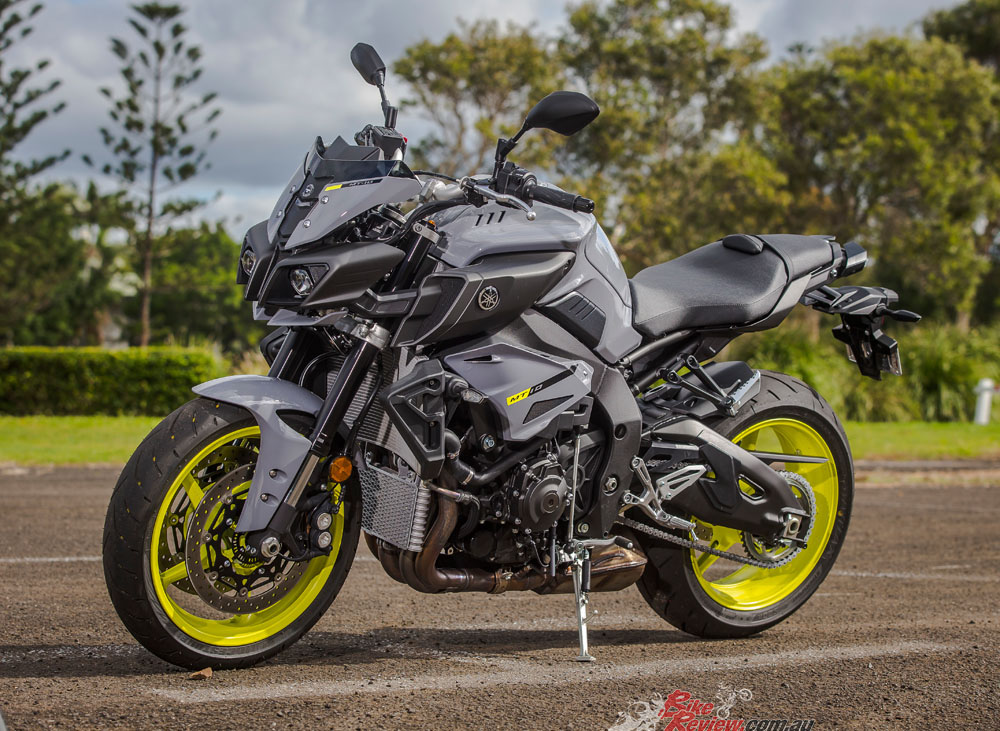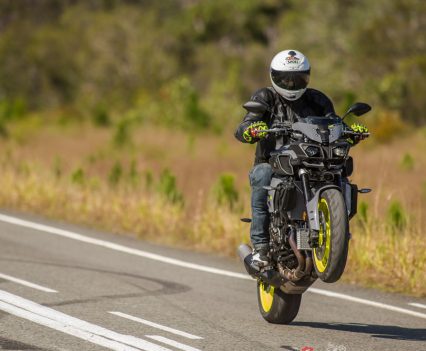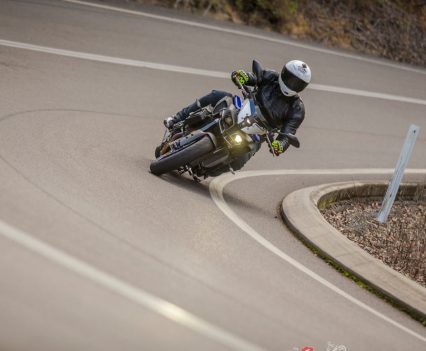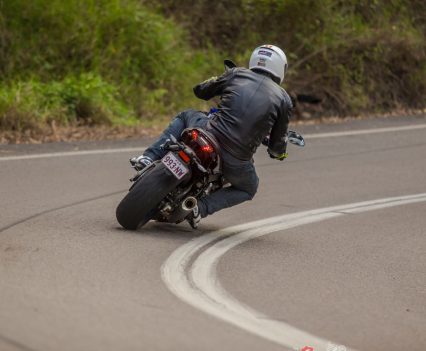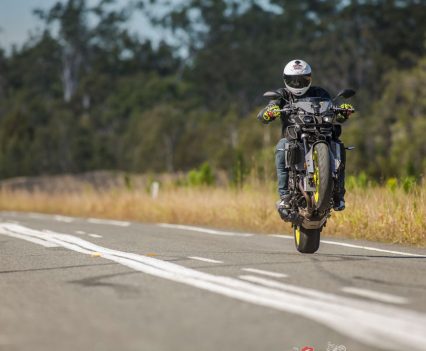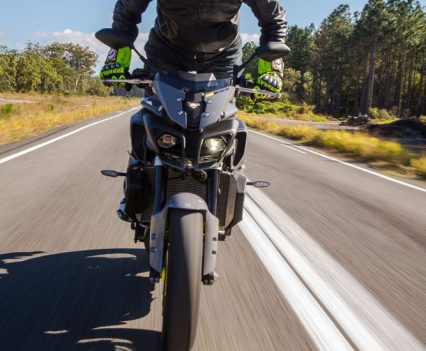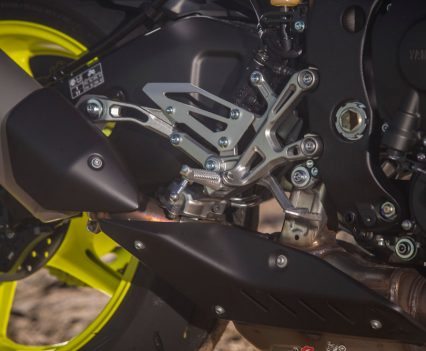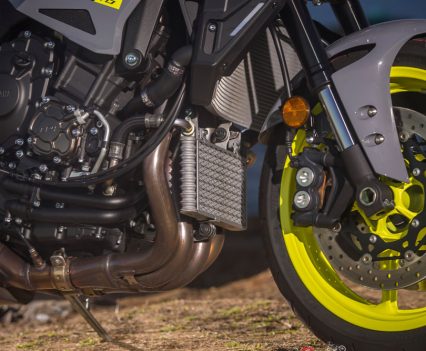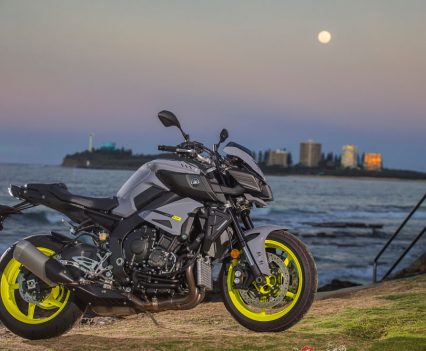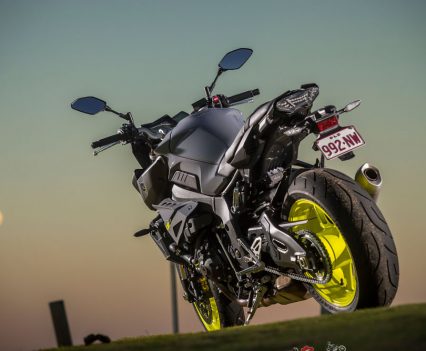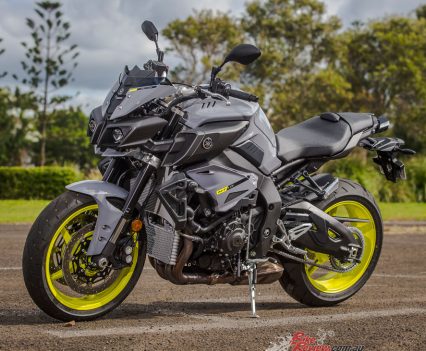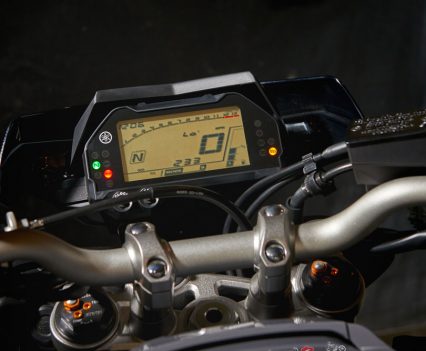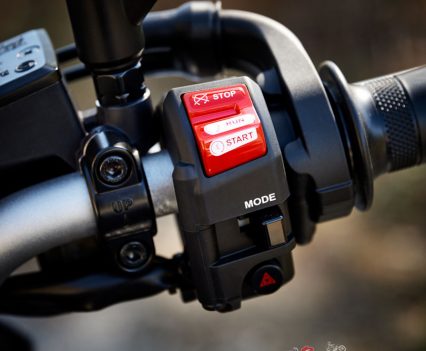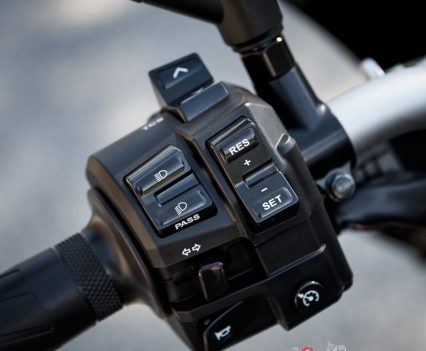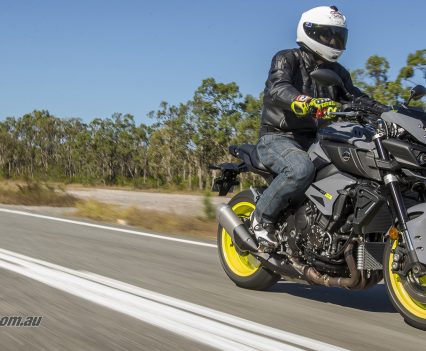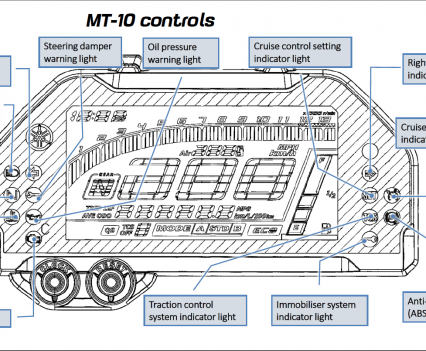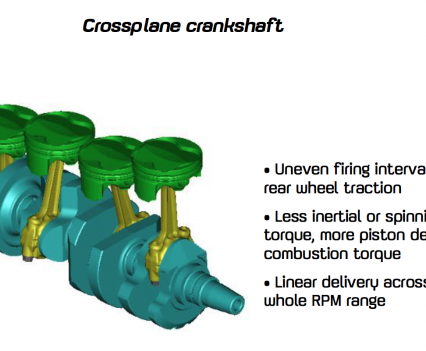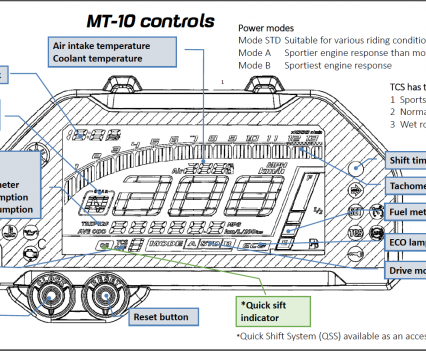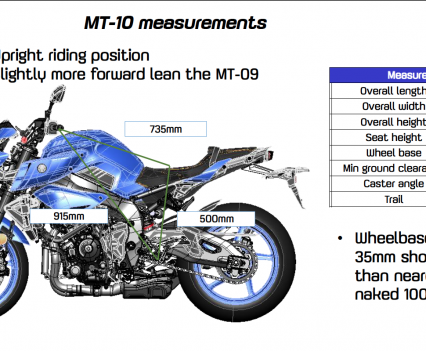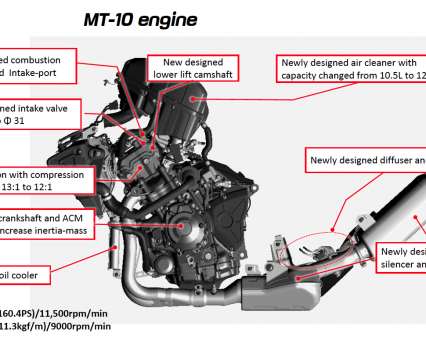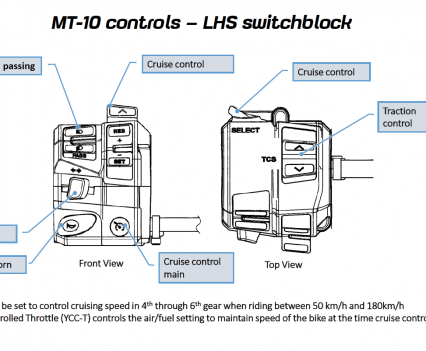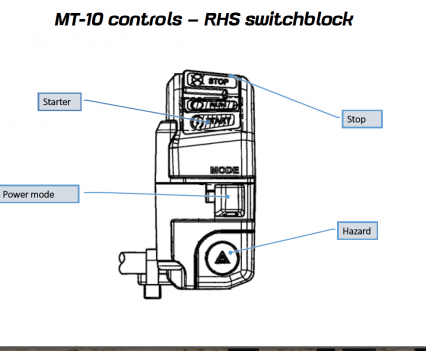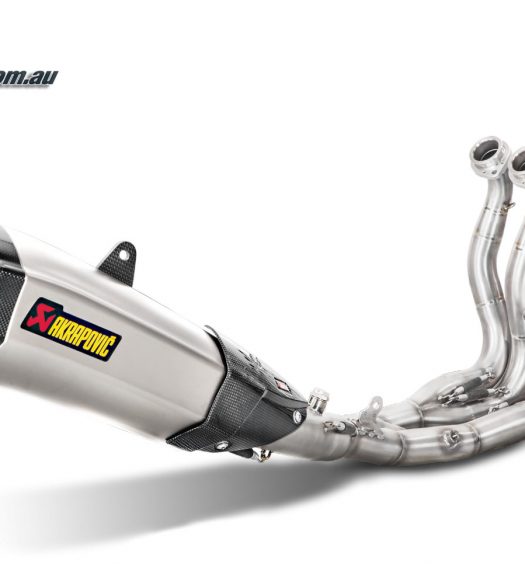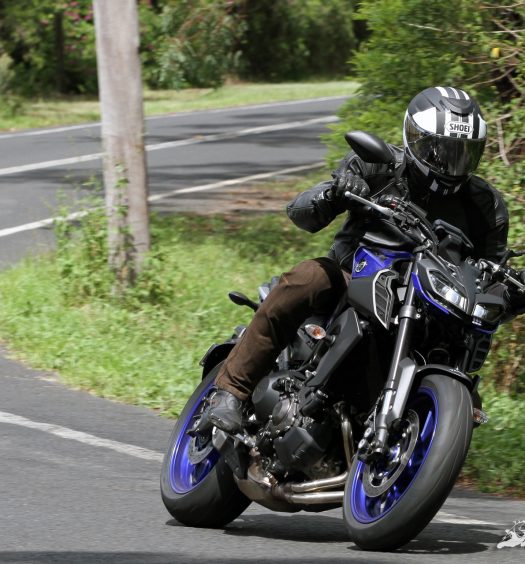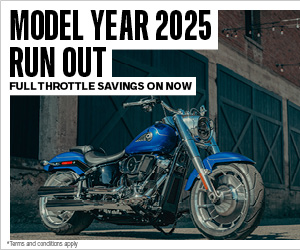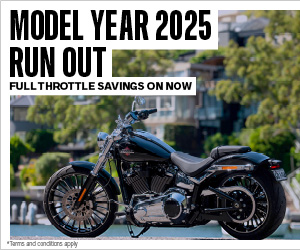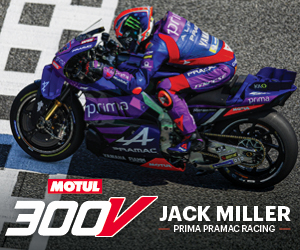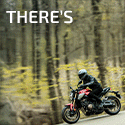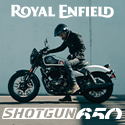Review: 2016 Yamaha MT-10
Yamaha's new MT-10 is one hell of a beast, making an impact on the hyper-naked scene. Here is our MT-10 review. Test: Jeff Ware Photography: iKapture/Yamaha
One of the most eagerly awaited nakedbikes of all time had a lot to live up to when it arrived Down Under earlier in the year.
More than once a 1000cc nakedbike based on a sportsbike sibling has being dumbed down too much. The early images leaked to the media often get us all revved up, only for drooling potential customers to be let down by a conservative version of what could have been…
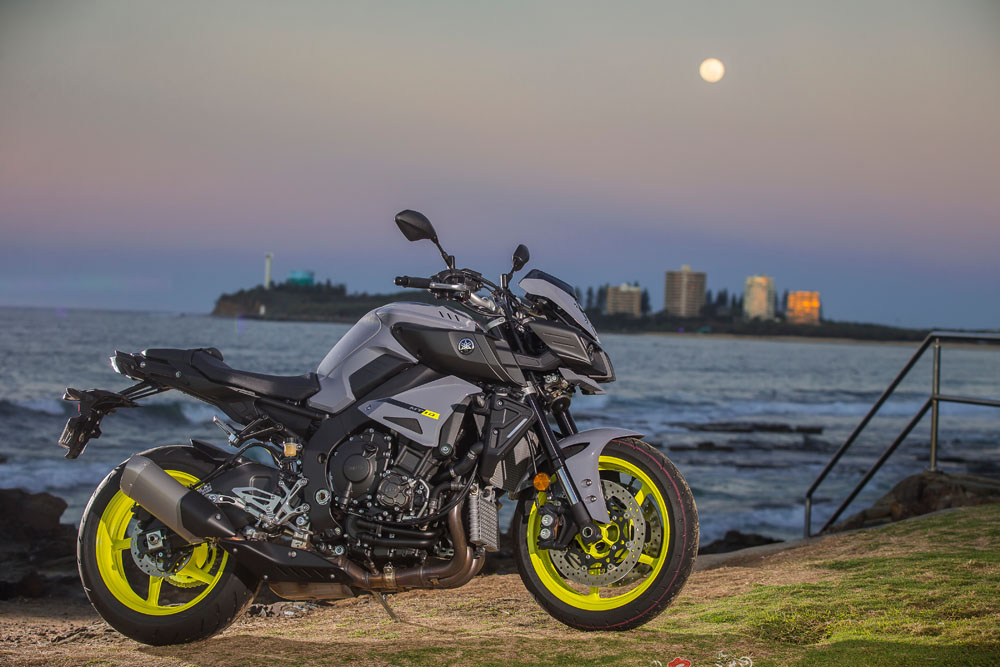 The Yamaha, in my mind, was potentially going to be one of those, a heavily sedated R1 with flat ‘bars. I was hoping not but still concerned.
The Yamaha, in my mind, was potentially going to be one of those, a heavily sedated R1 with flat ‘bars. I was hoping not but still concerned.
Well slap me with an EXUP valve. I was wrong, Yamaha, so wrong. The MT-10 is badass!
Versus the R1, Yamaha claim the weight increase is only 11kg, which is impressive, as is matching peak torque of 81ft-lbs, which has been moved from 11500 to 9000rpm and power figures of 160hp at 11500rpm. Impressive stuff.
After driving 1200km straight to arrive at the launch at midnight (don’t ask, you will only nod and sigh – it was an airline fail), and with the bar closed, I woke without hangover. Just as well, as I needed all the focus I could to control myself on the MT-10. This is a bike that draws you in and makes you bad.
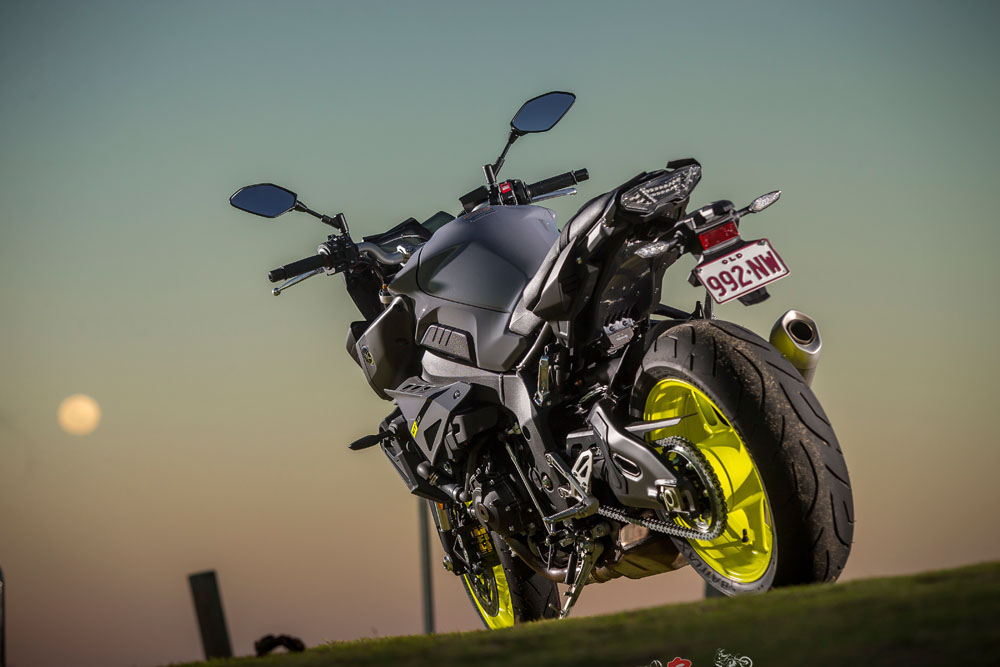 A walk around the bike was first for me, after coffee and some breakfast. Looks are such an individual thing and are extremely important to most riders. For me, aside from the classics of the 1980s and 1990s, I don’t go for looks. To me, the MT-10 looks semi-naked not naked.
A walk around the bike was first for me, after coffee and some breakfast. Looks are such an individual thing and are extremely important to most riders. For me, aside from the classics of the 1980s and 1990s, I don’t go for looks. To me, the MT-10 looks semi-naked not naked.
The top fairing is big and the side covers hide a third of that gorgeous engine. The oil cooler stands out and every time I look at the bike that is where my eyes are drawn. I get the theme and it clearly goes with the other MT bikes but somehow misses the mark for me that the MT-07 and MT-09 hit so well – that RD LC Yamaha family, fun but practical, hoon, somehow familiar feel. It’s not there for me, at least from a side view. It does however fit the FZ family well.
I hop on and things change. The bike looks completely different and feels Yamaha familiar. There are no bits hanging off that you can see, only clean lines and neat bodywork plus the trick dash. So from a cockpit POV I give it a 10 but from any other angle it’s a seven from me. Of course quality is typical Yamaha high spec stuff so top marks there. Security is good too with the standard immobiliser.
Now, the important thing – what’s the bike like to ride?
Our test loop was brilliant and a top move by Yamaha when it came to showcasing the versatility of the MT-10. It included everything from freeway cruising, which gave me a chance to test the cruise control and highway comfort, to full noise cambered smooth blacktop and even some snotty bumpy loose roads where I could test the ABS, suspension and traction control to their limits.
We were led by Yamaha Australia’s Marketing Manager, Sean Goldhawk, who knows how to peddle – being an ex motorcycle journalist, editor and publisher himself. The pace was fast but I had the opportunity to break away from time to time and push on a bit harder to find different limits.
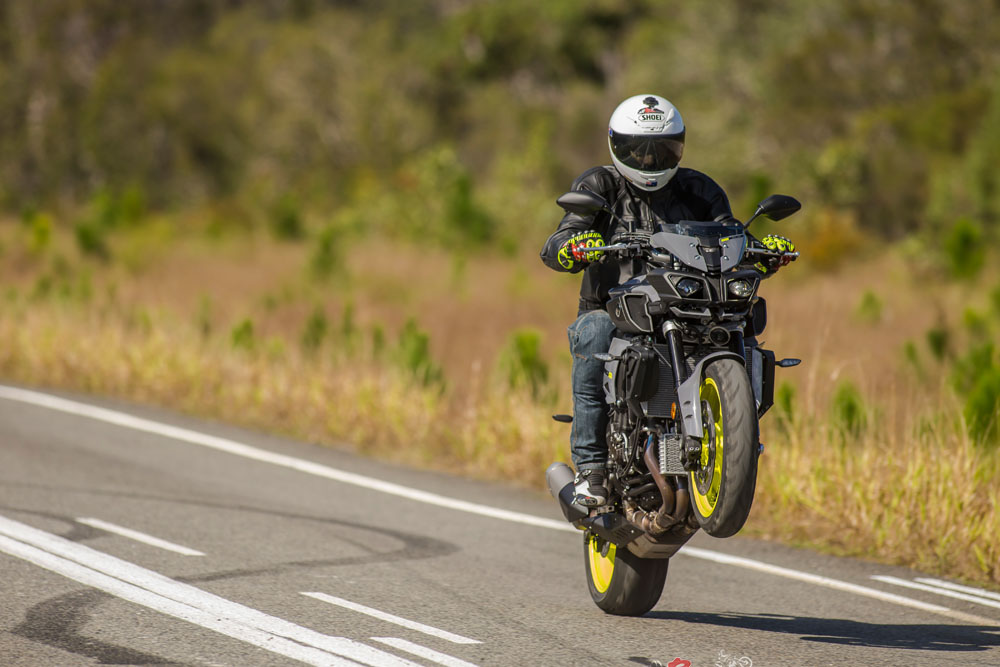 Onboard, the MT-10 feels like a perfect fit to me. The ‘peg to seat distance gives a comfortable bend at the knee and is 30mm lower in seat height than the YZF-R1. The MT-10 is also 110mm wider than the R1, mostly at the footpegs and ‘bar ends, while overall height is only 20mm less than the sportsbike sibling. What impresses me more as I get a feel for the bike is that despite these minimal differences the MT-10 definitely feels like its own bike not an R1 with MX ‘bars added on. It all just feels right to me.
Onboard, the MT-10 feels like a perfect fit to me. The ‘peg to seat distance gives a comfortable bend at the knee and is 30mm lower in seat height than the YZF-R1. The MT-10 is also 110mm wider than the R1, mostly at the footpegs and ‘bar ends, while overall height is only 20mm less than the sportsbike sibling. What impresses me more as I get a feel for the bike is that despite these minimal differences the MT-10 definitely feels like its own bike not an R1 with MX ‘bars added on. It all just feels right to me.
The controls fall to hand well but some look bulky. The amount of stuff that has to fit on a left switchblock these days is crazy. The dash itself is great and after spending a few minutes fiddling around I get the hang of it. Not too bad with just the three power modes, ABS and traction control plus cruise control and then the usual things a bike has.
Physically the bike feels like a large capacity naked and there is some static weight held high but overall a compact machine that is 5mm shorter in wheelbase than the YZF-R1 and shares the same rake and trail. There is also plenty of adjustability on offer so set-up can be individualised with the suspension and lever position. I also notice just before I head off that the sidestand is easy to feel for and use thankfully as some nakedbike stands are pains in the arse!
The big cross-plane four fires into life quickly with a single press of the starter button and settles into a deep rumbling idle. It sounds mean, with a slight crack, and lumpy. It’s a tough sound that matches the looks. Nice… Operating temp is achieved quickly and the ride begins.
The first thing I notice is the clutch action is super light and take up is progressive. The gearbox, like the R1, is positive but a firm shift down gears. On the way up I can’t compare them as the R1 has a quickshifter, something missed on this ultimate hoon machine and a feature that would take it to that next level of awesomeness…
Still, upshifting is smooth and precise and I can’t tell any ratio differences between R1 and MT-10, I’d have to ride them back-to-back on the same final gearing. Either way, the gearing and ratios are fantastic and I would not change a thing. There is ample grunt and acceleration is crazy, yet freeway cruising at 4500rpm@110-120km/h is silky smooth and just humming along. The mirrors remain vibe free at all times and there is good wind protection around the legs and knees for a naked. The airbox cover/tank sits high and I feel like I’m sitting in the bike rather than on it, which is ace.
At general transport section speeds in Mode STD the fuelling is silky smooth, with a very strong yet controllable, tractable power curve that seems to just feed monster torque endlessly to that fat rear S20. Mode B is super snappy and nasty and not quite right in my opinion, while A is a bit more aggro than STD with less initial snap that B, which was dubbed ‘beast’ mode on the ride.
The Yamaha press kit states the opposite for the modes A and B but the B mode is definitely the more agro one. However, around town I find STD is the best. I have TC set to the most intrusive, level 3. This is where I would leave the bike if it was my daily rider. It’d work in all conditions.
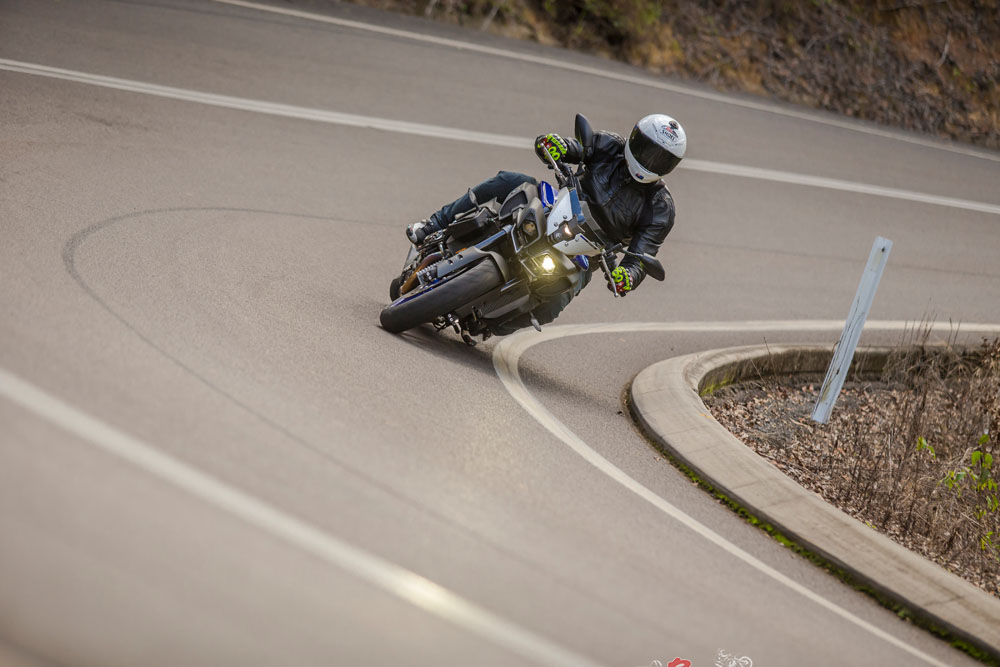 As things heat up a bit pace-wise and we start to climb into the hinterland, the sportsbike bones of the MT-10 really shine through and the true capabilities of the bike begin to make me think this could well be one of the best sports nakedbikes of all time.
As things heat up a bit pace-wise and we start to climb into the hinterland, the sportsbike bones of the MT-10 really shine through and the true capabilities of the bike begin to make me think this could well be one of the best sports nakedbikes of all time.
We climb a bumpy narrow road, which is seriously sketchy so a great test of the suspension and agility of the MT-10. The pace is hot and it’s more like a motocross race I think to myself as I brake, turn, gas, brake, turn, gas on the 10 – the TC working overtime not to mention the ABS. This is the kind of road that requires commitment and confidence in the mechanical grip of the bike and the ability for the suspension to keep the tyres on the ground.
There’s not a lot of feel on a road like this and the Yamaha is making an easy job of it. The electronics are helping, too. I would not push on this hard on a bike without traction control and ABS on this road. Both rider aids not only make my job easier, they also make the ride less risky.
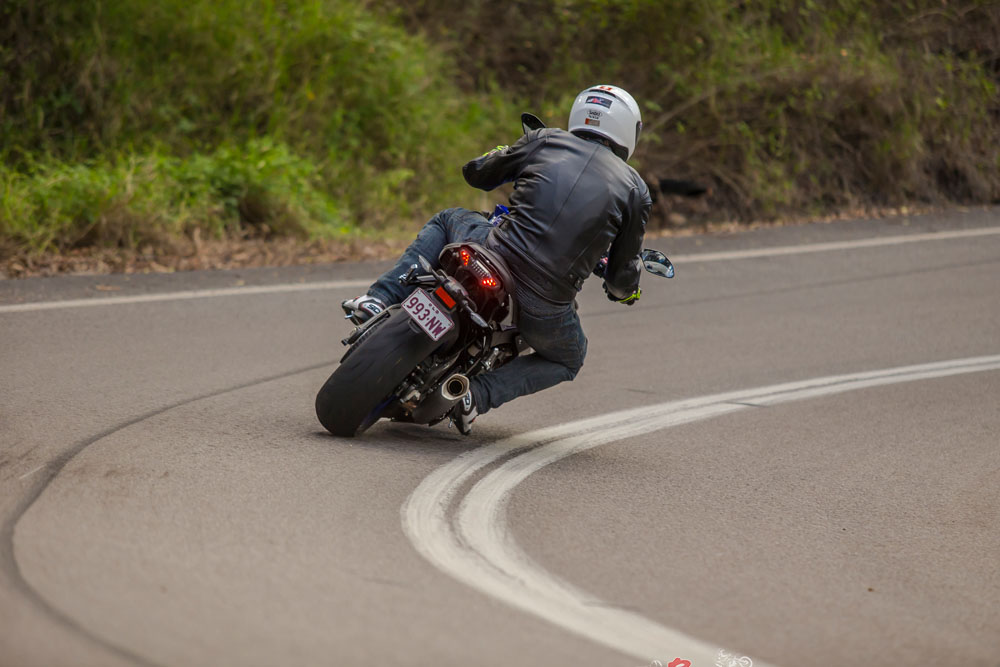 The severity of the bumps and looseness of the recently badly repaired road did not faze the MT-10’s suspension at all. The forks gave smooth high speed damping over sharper bumps and good support on sudden hard braking yet remained composed and plush over the undulating bumps. The rear of the bike was firm yet still soaking the bumps and again both high and low speed damping control along with rebound were spot on – and the 10 remained super stable at all times with no shakes at all.
The severity of the bumps and looseness of the recently badly repaired road did not faze the MT-10’s suspension at all. The forks gave smooth high speed damping over sharper bumps and good support on sudden hard braking yet remained composed and plush over the undulating bumps. The rear of the bike was firm yet still soaking the bumps and again both high and low speed damping control along with rebound were spot on – and the 10 remained super stable at all times with no shakes at all.
Brake feel in these conditions is a tough one as I am slamming them on into turns pretty hard – then firing the bike off the corner. Power wise in this situation there is good initial bite but that is well damped so not to cause sudden dive and there is plenty of power there. Out the back the rear brake is a gem and as a rider who burns through rear brakes through corners I appreciate a good one.
The brake to throttle transition in STD with TC on either 3 or 2 was smooth and had a nice predictable pickup for balancing the bike and getting momentum happening. That cross-plane engine is just so, so nice to play with and it’s a case of pick a gear, any gear, as there is endless torque on tap.
Wheelies between corners are all part of the fun. Overall after our first stop my notes highlight a really nice balanced chassis and a strong, linear engine that climbs to a cracking top end.
After a quick lunch stop we headed off for the rest of the ride.
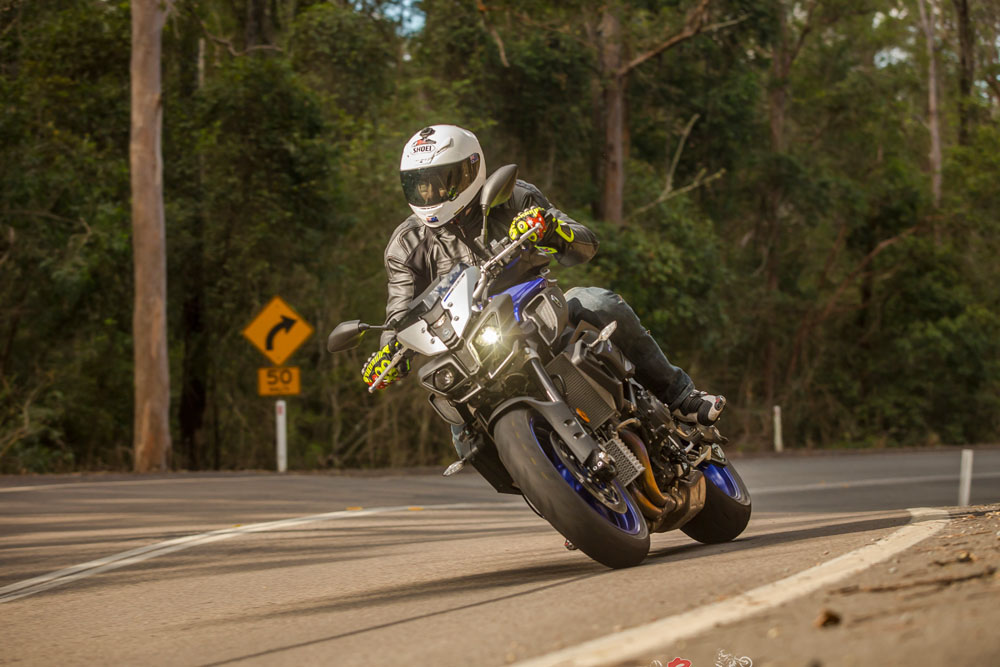 The smoother, faster more flowing sections give me the opportunity to feel how the chassis handles real cornering and also lets me stretch the legs of that stunning engine a lot more than the point and shoot test already done.
The smoother, faster more flowing sections give me the opportunity to feel how the chassis handles real cornering and also lets me stretch the legs of that stunning engine a lot more than the point and shoot test already done.
To say I’m impressed is a massive understatement as I start touching the ‘pegs down from corner to corner in the higher gears on the MT-10. The front-end is so planted I feel I can do anything and feedback is first rate. The R1 genes are showing and the ride is incredible. The suspension, still on stock settings, is brilliant under these conditions of being progressively loaded then unloaded, then loaded again from one big sweeper to the next, always maintaining chassis balance.
Brake feel is intimate and keeping the front tyre on edge with a bit of safety margin up the sleeve is made easy with this brilliant front-end package. At the back the rear is super stable and there are no signs of fade as we push on. Ground clearance is the limiting factor but the ‘pegs touch just at the right time and I would not raise them at all. They are a great indicator and messenger – don’t crank it over any further!
The MT-10 has stable yet sharp initial turn, steers brilliantly on or off the brakes, then is really nice and progressive through to full lean angle, where line can happily be modified with the simple nudge of the ‘bar and push on a peg. Impressive stuff and I prefer it to the YZF-R1 although obviously this is the street and the R1 would eat it at the track.
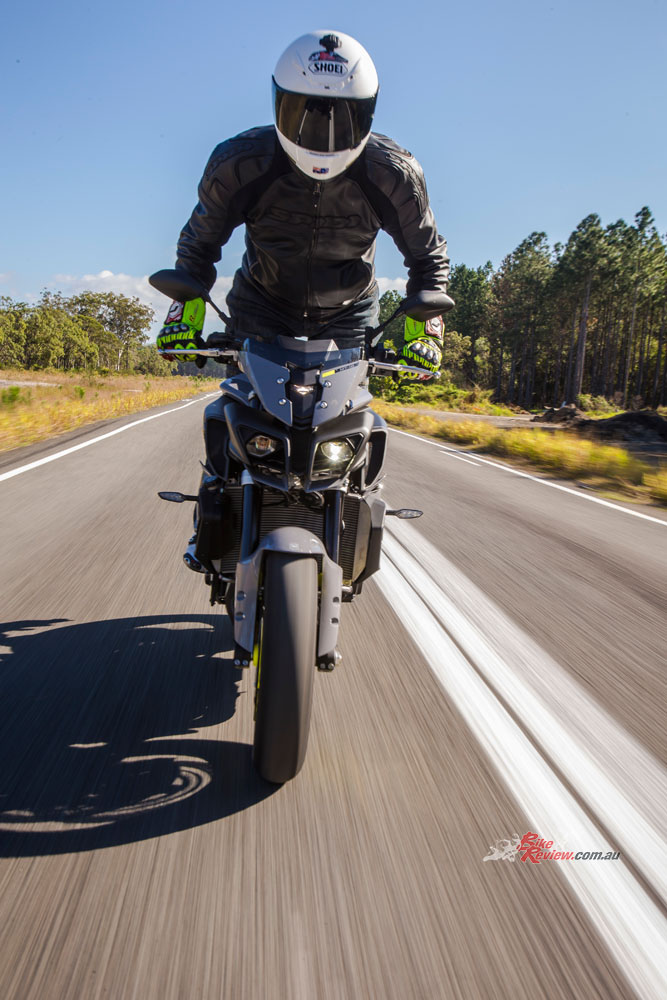 The throttle and power curve just seem to get better and better as speeds and revs rise and the gearbox remains slick and positive. I try the other modes and TC levels and settle for STD, TC2 on the fast smooth sections.
The throttle and power curve just seem to get better and better as speeds and revs rise and the gearbox remains slick and positive. I try the other modes and TC levels and settle for STD, TC2 on the fast smooth sections.
After some more frantic testing I follow the rest of the crew back to the hotel, where we share a few beers and our thoughts on the MT-10. There are a lot of smiles and that is always a good sign that the job has been done right and the bike must be a good one.
If you are in the market for a naked sports that could be an extremely versatile motorcycle to own, get to your local Yamaha dealer and take the MT-10 for a decent, proper test ride.
The bike is a winner, that’s a definite.
2016 Yamaha MT-10 Tech Talk
The MT-10 engine has been taken from the 2015 YZF-R1. The engine features a number of significant technical changes that are designed to deliver strong low to mid speed torque, including newly designed intake, exhaust and fuelling systems, as well as an optimised crank balance.
A number of model-specific settings have also been adopted in order to enhance the direct and connected feeling between the throttle and the rear wheel that is associated with the crossplane design.
Yamaha D-MODE offers the rider a choice of three engine running modes that are designed to suit different riding situations and conditions. The key to its operation are the electronics in the YCC-T that can instantaneously alter the engine character by adjusting throttle opening, ignition timing and fuel injection volume.
The Standard Mode gives a smooth feeling to the engine character throughout the entire rpm range, and is designed for use in a variety of riding conditions. ‘A’ Mode is claimed to deliver a sportier engine character in the low to mid speed ranges for added excitement and enjoyment, while ‘B’ Mode is claimed to deliver a milder response and is designed to be used in situations where more sensitive throttle use is appropriate – such as slippery surfaces or congested streets. However, it was widely agreed by all journalists and Yamaha staff present that B Mode was the more aggressive mode and A the milder mode.
The MT-10 comes equipped with a 3-mode Traction Control System (TCS) that can be deactivated if required. The system works by monitoring any slippage in the rear tyre, and when this is detected the YCC-T automatically controls throttle opening, ignition timing and fuel injection volume to restore rear wheel traction for increased control.
Level 1 has the lowest degree of TCS intervention and is designed for sports riding, while level 2 is suitable for normal street riding, and level 3 is for use in wet or slippery conditions where rear wheel traction is particularly low.
The MT-10’s advanced A&S clutch is similar to that used on the new generation YZF-R1, and its compact and sophisticated design offers a number of advantages to the rider when accelerating and decelerating.
The key feature on Yamaha’s A&S clutch is its specially designed slanting cam that is located between the clutch boss and the pressure plate. This mechanism augments the force of the clutch springs and consequently allows the use of lower rate clutch springs in the MT-10, giving a much lighter feel at the clutch lever.
When the rotational torque from the rear wheel is transmitted back to the clutch during deceleration, the slanted cams allow the pressure plate to slip out to some degree, and this allows the clutch to absorb the rear wheel’s back torque to give more controlled deceleration and increased riding comfort.
The MT-10 also comes equipped with a cruise control system that can be activated in 4th, 5th and 6th gears between 50km/h and 180km/h.
A switch on the left handlebar turns the cruise control on or off, and once it is activated, the Yamaha Chip Controlled throttle (YCC-T) maintains the selected speed of the bike whether riding uphill, downhill or on a level road. Speeds can be increased in 2km/h increments with a push of the switch, and any setting is automatically cancelled by activating the brakes, clutch or throttle – while the ‘Resume’ switch restores he cruise control to its last-used speed.
The MT-10’s natural and upright riding position has been developed to enable the rider to enjoy fully the outstanding performance of the YZF-R1-derived engine, whilst also offering the possibility of adopting different body positions to suit a range of situations. The handlebar/seat/footrest relationship – together with the shape and position of the tank cover and the use of wide tapered handlebars – have been designed to allow the rider to maintain a firm knee grip with good lower body contact during cornering and acceleration, and for added support during acceleration the rider’s seat features an integral hip stopper.
The rider’s forward lean position has been set at a slightly greater angle than on the MT-09 for comfortable higher speed riding, while the wide, slightly swept back upright handlebars and the horizontal spacious riders seat give a natural and flexible seating position suited to sports riding.
The design of the wide shouldered fuel tank cover with strong angular edges and duct shaped covers, together with the use of compact side cowls and the dual headlight front mask – accentuate the MT-10’s aggressive mass forward silhouette.
The MT-10’s chassis has been developed from the chassis used on the new generation YZF-R1.
To enhance the new MT’s all round comfort in typical day-to-day usage, the Deltabox frame has a revised strength/rigidity balance that delivers accurate feedback. Featuring a mass centralised design, the new steel sub-frame comes equipped with the necessary fixtures and fittings to facilitate the fitment of genuine Yamaha accessories.
The MT-10 runs with an ultra-short 1400mm wheelbase – a full 35mm less than the nearest competitor, making it the most compact one-litre naked bike in its class. Combined with the extra-long YZF-R1 type aluminium upward truss swingarm and subtle revisions to the chassis geometry, the 1400mm wheelbase gives light and neutral handling performance together with outstanding straight-line stability during acceleration.
The suspension has been developed from the highly regarded systems used on the latest generation YZF-R1. At the front end the KYB upside down cartridge forks feature 43mm tubes and offer 120mm of travel. The newly developed model-specific settings used on the MT-10 give a smooth and compliant feeling during the initial stroke in low load situations, while at higher loads the front forks give accurate feedback and feel from the front wheel for a high degree of controllability.
At the rear end the MT-10 is equipped with the YZF-R1-type upward truss type swingarm that pivots close to the machine’s centre to give outstanding straight-line stability. This extra-long high-tech aluminium swingarm operates a KYB rear shock through a bottom link Monocross system, and the MT-10’s suspension settings are designed to utilise the chain tension forces towards optimising driving force and traction during acceleration.
The bike is fitted with dual 320mm diameter floating front rotors that feature radial-mount opposed piston calipers with sintered pads. The front braking system is matched with a 220mm rear disc with a pin-slide caliper that gives plenty of feel and precise feedback, and ABS is fitted as standard.
Info is presented in an LCD multi-function instrument panel that includes a digital speedo, bar display tachometer, fuel gauge, odometer, gear position indicator and more. A shift timing indicator light can be adjusted to suit the rider’s individual preference, and there is a range of pictogram lamps that clearly display cautions, warnings and functions that are in use.
The dual LED headlights sit beneath a compact mask and screen, and the whole front assembly is mounted directly to the frame to accentuate the feelings of agility and lightness.
Both the front end and tail end incorporate a series of deliberately exposed fixtures that illustrate the customising opportunities the MT-10 offers, from the fitment of different screens through to side bags and more.
Other Bike Review Yamaha MT Range Reviews
MT-03
MT-07
MT-07 HO
MT-09
MT-09 TRACER
SPECIFICATIONS 2016 YAMAHA MT-10
PRICE: $17,999 + ORC
WARRANTY: Two-year/unlimited kilometre
COLOURS: Race Blu, Tech Black, Night Fluo
CLAIMED POWER: 118kW[160hp]@11500rpm
CLAIMED TORQUE: 111Nm[81ft-lbs]@9000rpm
CLAIMED WET WEIGHT: 210kg
ENGINE: Liquid-cooled, four-stroke, crossplane forward-inclined parallel four-cylinder, four-valve per cylinder, DOHC, 79 x 50.8mm bore x stroke, 998cc, 12.0:1 compression, banking sensitive TCS/SCS, LIF, LCS, QSS, PWR power modes, YCC-I, YCC-T, six-axis IMU, magnesium oil pan, four-into-two-into-one exhaust.
GEARBOX: Constant mesh, six-speed
CLUTCH: Assist and Slipper clutch, wet, multiple-disc
CHASSIS: Aluminium Deltabox frame, aluminium upward-truss swingarm, alloy sub-frame, Rake: 24, Trail: 102mm
SUSPENSION: 43mm KYB fully adjustable telescopic forks, KYB rear shock
BRAKES: ABS, dual 320mm front rotors, dual monobloc four-piston calipers, 220mm rear rotor, single-piston pin-slide caliper
WHEELS & TYRES: Cast alloy wheels, 120/70 – 17 (f), 190/55 – 17 (r)
DIMENSIONS:
Seat height: 825mm
Overall height: 1110mm
Overall length: 2095mm
Width: 800mm
Ground clearance: 130mm
Wheelbase: 1400mm
INSTRUMENTS: TFT LCD display
The Verdict | Review: 2016 Yamaha MT-10
Muscle Bike
Fast and easy. It has it all…



